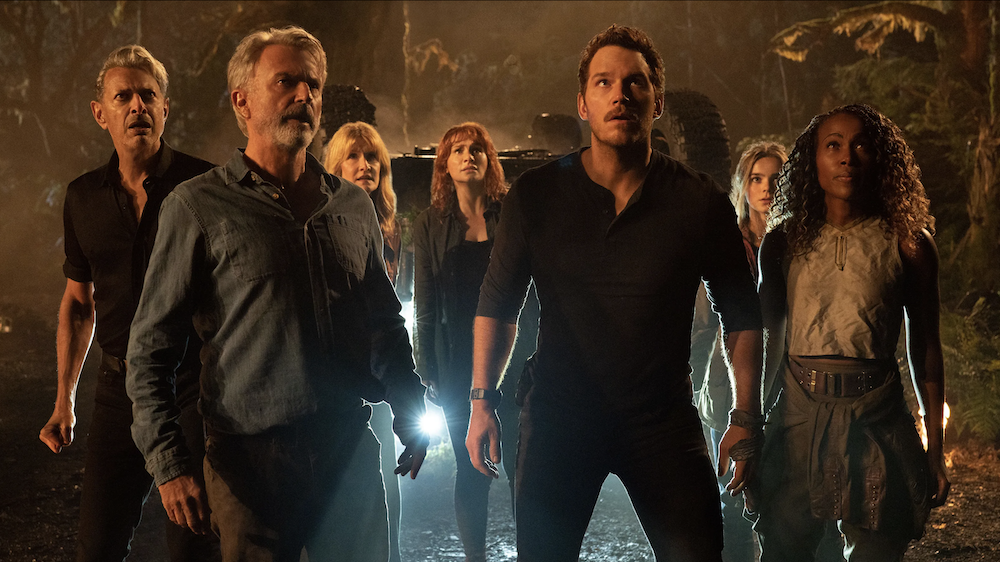Science fiction has always been an outlet for our subconscious (and conscious) fears and anxieties.
We can wrestle with difficult topics like morality, human nature, death, and religion when they’re coded into parables and allegories of magic and far-flung futures.
1984 was a commentary on totalitarian regimes.
I, Robot explored artificial intelligence.
Godzilla was a commentary on the atomic bomb.
A popular question in science fiction is, just because we have the technology to do something, should we?
Perhaps a product of the early 90s and cloning technology hitting the public consciousness, the writers of the original Jurassic Park struggled with humanity’s ability to play with DNA.
The wealthy patron of the fictional dinosaur amusement park, John Hammond, represents our collective good intentions, and the idea that if we’re careful enough, we can handle godlike powers.
“We spared no expense,” Hammond says repeatedly when explaining the safety features and amenities of the park.
Consequences of Playing God in Jurassic World Dominion
But through the story, we can wrestle with the consequences of playing god.
Spoiler alert, things go wrong and dinosaurs eat people.
Before opening to the public, Hammond invites a small group of influential experts to weigh in and hopefully endorse the park. Dr. Ian Malcolm points out in his initial assessment of Jurassic Park, “don’t you see the danger, John, inherent in what you’re doing here? Genetic power is the most awesome force the planet’s ever seen, but you wield it like a kid that’s found his dad’s gun.”
Jurassic World Dominion, brings the danger to its conclusion as dinosaurs have been completely unleashed into the world and there’s no going back.
Updated for modern audiences in 2022, instead of an old tycoon at the height of his arrogance, we see a tech billionaire channeling his best Steve Jobs/Elon Musk impression; eccentric, above the law, ambitious, proud, and with the resources to take his turn at playing god.
The aptly named Biosyn corporation has a monopoly on dinosaur genetics and are wielding the “awesome force” for profit.
Instead of exploring the morality of cloning, today’s audience feels the question, “who is keeping the ultra-rich in check?”
And it’s everyday people who again pay the price to make things right.
Unfortunately, the answer to the question, “should we play god?” becomes more muddied in this modern Jurassic film.
Instead of the conclusive answer like in the original film, here we’re left with an object lesson: the tools and power to play god can be used for good or evil.
Other Themes
We’ve seen the danger for destruction, but we’ve also seen the potential for scientific breakthroughs, and it’s an unsettlingly realistic portrayal of how scientific advancement has gone in history.
Instead of a moral warning, the film acts as a reminder that everyday people can take a stand for what’s right and make a difference.
It’s also a tale of redemption, how being on the wrong side doesn’t have to define you, but having the courage to step out and do the right thing, does.
We see that in scientist Henry Wu who realizes the hubris of his work and comes to repentance, actively working to undo the harm his research has done. We also see it in the antagonist’s assistant, Ramsey, who works against his boss and Biosyn’s nefarious plans.
Another theme throughout is that of responsibility. If you create life, are you responsible for that life?
This idea plays out in the original as courageous but commitment-averse doctor Alan Grant finds himself stewarding children through the dinosaur-infested park.
Through it all, Grant comes to see parenthood as a worthy and rewarding pursuit. It’s a stirring theme that gives Jurassic Park its heart.
In Dominion, adoptive parents Owen Grady and Claire Dearing continue this thread as they go to the ends of the earth to rescue the kidnapped Maisie.
While many of these themes are uplifting, overall the movie does become bloated with the extra set of characters from the original. While the nostalgia and fan service are exciting, it leaves little screen time for satisfying character arcs.
The story also takes a long time to set up the state of the world and the plot has to do narrative gymnastics just to fit in both the modern characters and the original characters. Too often people meet and say, “Hey I’ve heard of you” only for the plot to steamroll on.
The movie itself also borrows too many styles without landing on its own.
What you get is a setup that drags on, a confusing Dinosaur flavoured Indiana Jones first act, followed by a rescue and base infiltration second act that feels an awful lot like a Star Wars ripoff complete with a new Han Solo character, all before flipping back to a familiar Jurassic Park chase and dinosaur battle finale.
Had the writers kept themselves to one style and followed a smaller cast, the movie could’ve been a stellar conclusion to the modern trilogy.
But like the scientists and visionaries of the original Jurassic theme park, the writers just couldn’t help themselves, and the studio certainly spared no expense.
Overall, fans of the original Jurassic Park films will have a lot to love here, and new fans of the modern trilogy will no doubt want to see the thrilling conclusion.
It’s unfortunate that in the pursuit of huge box office returns, the storytellers have watered down the allegory for a more palatable parable. If you’re willing to sit through an uneven first half, there are still plenty of dinosaur exploits to be had, and solemn reminders that doing the right thing, no matter how small, always makes a difference.
About


